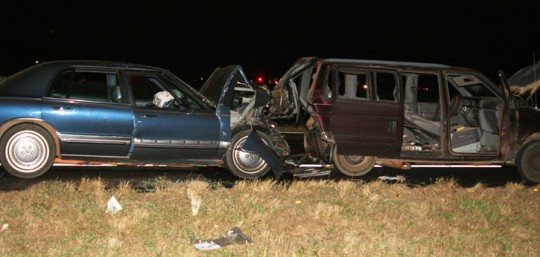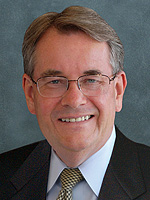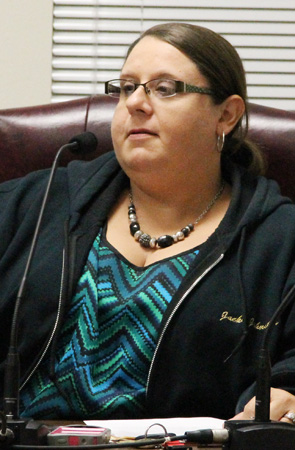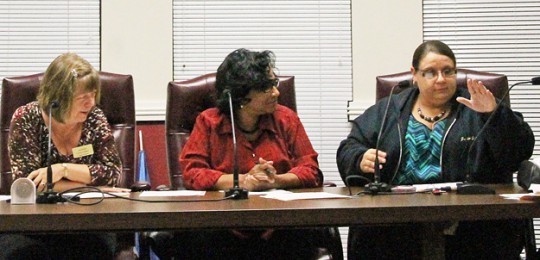Bill Would Bar Insurers From Considering Gun Ownership
November 6, 2013
State Rep. Matt Gaetz, R-Fort Walton Beach, filed a bill this week that would prevent property and auto insurers from refusing to issue or renew policies based on customers’ legal use, possession or ownership of firearms.
The proposal also would bar insurers from charging a “discriminatory” rate because of guns. The proposal, which will be considered during the spring legislative session, would take effect July 1, 2014, if passed.
House, Senate Look At Ditching No Fault Insurance
November 6, 2013
A House Republican is driving forward with plans to replace the state’s “no-fault” auto insurance coverage, two years after lawmakers passed reforms to try to rid the system of fraud.
However, the proposal continues to be reviewed in a “deliberative and thoughtful manner” in the Senate as a number of insurance officials have tempered their call for a change after a constitutional challenge to the 2012 reform law was recently sidetracked.
 Rep. Carlos Trujillo, R-Miami, on Tuesday filed two measures (HB 267 and HB 269) directed at making bodily injury coverage, which a vast majority of motorists in Florida already purchase, the replacement for no-fault.
Rep. Carlos Trujillo, R-Miami, on Tuesday filed two measures (HB 267 and HB 269) directed at making bodily injury coverage, which a vast majority of motorists in Florida already purchase, the replacement for no-fault.
The measures replicate a draft being put together by Senate Banking and Insurance Chairman David Simmons, R-Altamonte Springs.
Simmons said he will continue to gather input on the proposal after his committee reviewed the potential change on Tuesday.
Simmons had been advancing the measure at the request of some insurance officials who said they didn’t expect reforms to the decades-old Personal Injury Protection (PIP) auto insurance system — also known as no-fault — to fully take hold.
But Simmons noted that some of those advocates have taken a wait-and-see attitude after the 1st District Court of Appeal tossed out a challenge to the law Oct. 23. The court found that an acupuncturist, a chiropractor, two massage therapists, a hypothetical “John Doe” representing health-care providers and a hypothetical “Jane Doe” representing motorists lacked legal standing.
Michael Carlson, executive director of the Personal Insurance Federation of Florida, a three-year-old trade association which includes Allstate, Progressive and State Farm, was among those on Tuesday saying the Legislature should continue to see if the 2012 reforms hold.
“There’s some very, very initial trend data showing that some claims are decreasing,” Carlson said. “It seems to indicate some of the costs in the system are being addressed. We’re hopeful the (HB) 119 reforms will continue to address those costs.”
Donovan Brown, state government relations counsel for the Property Casualty Insurers Association of America, also encouraged lawmakers to give the 2012 law time to work.
“After nearly a year and a lawsuit later, the reforms finally have the ability to be fully implemented,” Brown stated.
Still, Simmons said language in the appeals-court ruling indicates the no-fault system doesn’t have a future.
The court “told us the wrong plaintiffs were involved in that lawsuit but certainly used language that would indicate that there are significant questions that need to be resolved of the 2012 amendments,” Simmons said.
“That 1st DCA opinion, decision provides no solace to an insurance company who is trying to deal with PIP,” Simmons continued. “As someone told me, it’s just a stay of execution.”
Instead of a “hypothetical claim,” the plaintiffs failed to offer a “factual” motorist who is harmed by the law, the judges wrote.
The order reversed a March ruling by Leon County Circuit Judge Terry Lewis, who said the law illegally prevented accident patients from using PIP claims to pay for treatment by acupuncturists and massage therapists and limited services from chiropractors.
Lewis also found fault with the law’s lower limit on how much will be paid for non-emergency medical care.
The 2012 law, signed by Gov. Rick Scott and backed by Chief Financial Officer Jeff Atwater, requires that people involved in motor vehicle crashes seek treatment within 14 days and allows up to $10,000 in benefits for emergency medical conditions and $2,500 for non-emergency conditions.
The bill was considered a last ditch effort to maintain the PIP system, which requires motorists to carry $10,000 in medical coverage.
Ditching no-fault for bodily-injury, which provides coverage if a motorist causes an accident that hurts someone else, is expected to put more questions of medical coverage into the courts as injured parties seek to recoup expenses from at-fault drivers.
Gerald Wester, a lobbyist for the American Insurance Association, said PIP continues to see fraud and recommended that if the Legislature were to change the system, bodily injury should have minimum of $10,000 coverage for a single person injured in an accident and $20,000 for all liable injuries in an accident.
Wester, Paul Sanford, legislative counsel for Blue Cross and Blue Shield of Florida and the American Council of Life Insurers, and Paul Jess, the general counsel and deputy executive director of the Florida Justice Association, recommended that the changes in the insurance system include a form of “Medical Payments to Others” — also known as Med Pay — that covers medical payments for all passengers in a vehicle if they are injured in an accident.
Sandra Starnes, Florida Office of Insurance Regulation director of property & casualty product review, said eliminating no-fault could result in savings for most drivers, with the most significant savings in South and Central Florida, where PIP fraud has been most prevalent.
by Jim Turner, The News Service of Florida
NorthEscambia.com file photo, click to enlarge.
Hilrey “Don” Entrekin
November 6, 2013
Mr. Hilrey “Don” Entrekin, 84, passed away on Sunday, Novmeber 3, 2013, in Mobile.
Mr. Entrekin was a native of Century and had resided in Brewton since 1994. Mr. Entrekin was a member of Norris Masonic Lodge #301, Scottish Rite and Shriners Abba Temple in Mobile. His parents, Joel & Lena Entrekin; brothers, Vernon Entrekin and Aubrey Entrekin; and sister, Ethel McElvoy precede him in death.
Survivors include his wife, Lillie Entrekin of Brewton; one son, James V. Entrekin of West Carrolton, OH; three daughters, Nicole Santoro of Greenfield, OH, Donna (George) Ferenczi of Trotwood, OH and Patricia Santoro of Tucson, AZ; five grandchildren and four great-grandchildren.
Funeral services were held Wednesday, November 6, 2013, at the Petty-Eastside Chapel Funeral Home with Rev. Rusty Burnham officiating.
Burial was at the Serenity Gardens Cemetery.
Pallbearers were James Entrekin, Charles Proctor, Justin Proctor, Lloyd Proctor, Nathan Gillis and Bernie Raines.
Honorary Pallbearers were the Masons.
Petty-Eastside Chapel Funeral Homes, LLC is in charge of all arrangements.
Report Blasts Florida For Child Deaths As Lawmakers Zero In
November 6, 2013
Florida’s recent series of child-abuse deaths took center stage at the Capitol on Tuesday, as a report blasted the state child-welfare system and as both chambers of the Legislature signaled they would craft bills to address the system’s shortcomings.
Department of Children and Families Interim Secretary Esther Jacobo briefed lawmakers on a report by the Casey Family Programs, a private group she had asked to review the spate of deaths when she was tapped to lead the agency in mid-July.
The Casey staff examined 40 recent child deaths suspected to have been caused by maltreatment. In each case, the family had at some point previously been investigated by DCF. The report concluded that child-welfare workers often failed to develop safety plans for at-risk kids or to follow up when they did. Many ignored the signs of families struggling with substance abuse, mental illness, domestic violence and other dangerous conditions for children.
“A number of babies in these families later died from asphyxia resulting from co-sleeping with parents under the influence of drugs or alcohol,” noted the Casey group.
The report also found that many families need services in order to be safe for their children — including substance-abuse and mental-health treatment — but can’t get them in Florida.
“I don’t think any of the findings were a surprise to us,” Jacobo told members of the Senate Children, Families and Elder Affairs Committee.
Jacobo was one of six panelists who briefed senators Tuesday morning about the children’s deaths. The others were Judge Katherine Essrig, a dependency court judge in the 13th Circuit; Pam Graham, a professor at the Florida State University School of Social Work; Barbara Wolf, who serves on the child abuse death-review panel for five counties; Christina Spudeas, executive director of the advocacy group Florida’s Children First; and Kurt Kelly, CEO of the Florida Coalition for Children, which represents the privatized community-based care agencies.
Chairwoman Eleanor Sobel, D-Hollywood, asked them to explain why Florida children are dying and to suggest legislative solutions.
Spudeas, the advocate, pointed to a lack of oversight.
“In the past five years, DCF has reduced the quality-assurance staff by 72 percent,” she said. “The department’s quality-assurance process and contract oversight have been decimated.”
Graham, the professor, called for well-trained, professional social workers making key decisions about the futures of troubled families.
“Imagine (private investigators) who have been on the job 10, 15 years,” she said. “Think of the kinds of information and experiences that they’ve had. Imagine a foster kid who has had the same caseworker. We know from working with foster children that it only takes one person to make a difference in their lives.”
Wolf agreed with Sen. Thad Altman, R-Melbourne, on the need to bring back his 2013 bill assuring confidentiality for child death-review panels, which was vetoed by Gov. Rick Scott.
The meeting also included some testy exchanges.
Sen. Nancy Detert, a Venice Republican known for championing kids in foster care, asked Jacobo and Kelly how the community-based care agencies account for the $769 million they get yearly from the state. Known as CBCs, the private agencies deliver adoption, foster care and case management services at the regional level.
“I’ve heard that some of them have gone out of business, leaving millions of dollars in debt,” Detert said. “I’ve also heard that some of them, in order to manage their budgets, are taking some of the money that was meant for the kids through the independent living program. Where’s the responsibility and accountability?”
Kelly said the CBCs were accountable to the Legislature, the courts and their own boards of directors.
Jacobo said if the CBCs misuse their funding, the department can bring in an inspector general and ask for repayment out of non-state funds.
“If they’ve gone out of business, they can’t pay it back,” Detert said.
Jacobo and the writers of the Casey report also addressed the House Healthy Families Subcommittee later Tuesday. Chairwoman Gayle Harrell, R-Stuart, has led her panel through three meetings on the child deaths.
Jacobo told House members she asked the CBCs to analyze which services are available in their regions, with special attention to children with disabilities, substance abuse, mental health issues and domestic violence — all key factors highlighted in the Casey report.
“It’s a matter of what services are available and what services CBCs can leverage in their communities,” she said
The good news for DCF was that the Casey report said Florida’s new safety methodology “appears to be well designed to address many of the problematic child protection practices identified in this review.”
Both Harrell and Sobel say they anticipate bringing committee bills on child protection to the 2014 Legislature.
“I’m hearing a lot about process and not a lot about solutions,” Detert said after the meeting. “But I think the solutions are probably going to come from our side of the table.”
by The News Service of Florida
David E. Dean
November 6, 2013
Mr. David E. Dean, Jr. 88, of Lottie, Alabama, passed away November 4, 2013, in Bay Minette. He was born June 21, 1925, to the late David E. Sr. and Willie Jones Dean. He served in the United States Navy in the Atlantic during WWII and later in the Pacific. He was a member of the American Legion and VFW Post 7016. He was a farmer for many years. He served his community and his church. He worked for Production Credit and was chairman of the Baldwin County Soil and Water Supervisors for 20 years. He was a board member of Southern Pine Electric, Baldwin County Farm Bureau, Perdido Alumni and a member of Lottie United Methodist Church, where he served as chairman of the board of Trustees and was finance chairman for many years. He is preceded in death by his parents and siblings, Frank Dean, Herbert Dean, Albert Dean, Ruby Hayles, Myrtle Shiver and Claude Dean.
He is survived by his wife of 64 years, Marjorie Taylor Dean; three daughters, Cheryl Dean (Burk) McWilliams of Arley, AL, Karen Dean (Stephen) Caldwell and Susan Dean (Jim) McCracken, both of Lottie; seven grandchildren, Jason, Vaughn, Rachael, Josh, Thomas, Jim and Jennifer; and 12 great-grandchildren and numerous family and friends.
Funeral services will be held Friday, November 8, 2013, at 11 a.m. from the Lottie United Methodist Church with Dr. Doug Williams and Rev. David Edwards officiating.
Burial will follow in Lottie New Home Cemetery with VFW honors.
Active pallbearers will be Jimmy Hayles, Claude Dean, Bill Sigler, Wayne Dean, Wendell Dean and Jack Weatherford.
Honorary pallbearers will be Jerry Darden, Jason Caldwell, Vaughn McWilliams, Josh Caldwell, Thomas McWilliams and Jim McCraken.
Visitation will be held Friday, November 8, 2013, from 10 a.m until service time at 11 a.m. at the Lottie United Methodist Church.
Contributions can be made to the Lottie New Home Cemetery Fund.
Johnson-Quimby Funeral Home is in charge of arrangements.
Gaetz: Common Core Educational Standards Are Not A Conspiracy
November 5, 2013
Senate President Don Gaetz, R-Niceville, defended the Common Core State Standards against attacks by some conservative activists who fear the standards could lead to federal overreach in the state’s education system.
 Answering a question from the audience after a speech on education policy Monday, Gaetz dismissed some of the concerns that were raised by conservatives during a series of public hearings on the standards, based on national benchmarks developed by state officials.
Answering a question from the audience after a speech on education policy Monday, Gaetz dismissed some of the concerns that were raised by conservatives during a series of public hearings on the standards, based on national benchmarks developed by state officials.
“You can’t dip them in milk and hold them over a candle and see the United Nations flag or Barack Obama’s face,” Gaetz said. “They’re not some federal conspiracy.”
The Senate president did leave open the possibility that the standards might be tweaked as a result of the public hearings if they’re not strong enough in some areas.
“I think the common core standards are good, solid standards. … So if there are ways that we ought to raise standards in order to reach higher and expect more of our students and more of our educational system, then let’s do that,” Gaetz said.
by The News Service of Florida
Gulf Power Bills Headed Up
November 5, 2013
Customers of three of the state’s largest utilities — including Gulf Power — will see their monthly electric bills increase in 2014, after regulators Monday approved charges for expenses such as power-plant fuel.
 Residential customers of Gulf Power Co. who use 1,000 kilowatt hours of electricity a month will see their bills jump in January from $118.88 to $127.94. an increase of $9.06 per month. Utilities typically point to 1,000 kilowatt hours as a benchmark, though residential use varies widely and business customers are billed differently.
Residential customers of Gulf Power Co. who use 1,000 kilowatt hours of electricity a month will see their bills jump in January from $118.88 to $127.94. an increase of $9.06 per month. Utilities typically point to 1,000 kilowatt hours as a benchmark, though residential use varies widely and business customers are billed differently.
By Florida statute and established Public Service Commission policy, electric utilities may recover certain expenses from customers through cost recovery charges adjusted annually by the PSC. Cost recovery is allowed on fuel and purchased power, capacity , conservation, and environmental requirements. Utilities may not, however, earn a profit on fuel charges.
Most of the increases approved Monday by the PSC are related to fuel and are included in the fuel charge on customers’ bills.
Escambia Man Convicted Of Trying To Kill Deputy
November 5, 2013
An Escambia County man has been convicted on charges that he tried to kill an Escambia County Sheriff’s deputy.
 Ryan Lewis Toler, was convicted of attempted first degree murder of a law enforcement office and aggravated assault on a law enforcement officer.
Ryan Lewis Toler, was convicted of attempted first degree murder of a law enforcement office and aggravated assault on a law enforcement officer.
The incident took place on May 20, 2013, inside the Oakwood Terrace Apartment complex at approximately 9:00 a.m. Escambia County Deputy Michael Runge was in the process of contacting Toler on the property when the defendant fled on foot. Deputy Runge gave chase and during the chase Toler withdrew a pistol and pointed it at Runge and pulled the
trigger. The firearm did not discharge due to a faulty magazine.
Toler was apprehended shortly thereafter and the firearm was recovered on Market Street.
Toler faces up to life in prison when he is sentenced by Judge Gary Bergosh on November 18. Toler also has a pending charge of possession of firearm by a convicted felon that may be addressed at his sentencing.
Century Develops Plan To Regulate Barnyard Animals
November 5, 2013
The Century Town Council has developed a plan to deal with barnyard animals in the town limits.
During a Monday night workshop, the council formulated rules to be included a new ordinance that bans hogs and limits other animals.
 Under the ordinance, barnyard animals — horse, mule, donkey, goat, sheep or cattle — will be allowed only in areas currently zoned as agricultural or rural residential. Minimum acreage of one acre per donkey or horse or one-half acre per goat will be required. The animals must not be within 200 feet of the primary dwelling on the property or 200 feet of any property line.
Under the ordinance, barnyard animals — horse, mule, donkey, goat, sheep or cattle — will be allowed only in areas currently zoned as agricultural or rural residential. Minimum acreage of one acre per donkey or horse or one-half acre per goat will be required. The animals must not be within 200 feet of the primary dwelling on the property or 200 feet of any property line.
The setback requires would make it impossible to have barnyard animals on a single acre or smaller size lot, council members acknowledged.
“I’m really having to dig deep to allow this at all,” council member Jacke Johnston said. “I don’t think in the Town of Century you should have have barnyard animals at all.”
Once the ordinance is written, it will be presented to the council twice and a public hearing held. After the law is in place, existing barnyard animals will be grandfathered in and allowed to remain in the town. Once an animal dies in an area that does not meet the minimum acreage and setback requirements, it cannot be replaced.
Residents wishing to have their animals grandfathered in, once the ordinance becomes law, will be required to register their barnyard animals with the town hall.
If a property has six goats grandfathered in under the new ordinance, for example, they can’t exceed that number of animals in the future.
When asked what would happen if the goats should become pregnant, Council President Ann Brooks stressed the original number of grandfathered animals could not be exceeded on property not meeting the acreage and setback requirements.
“You will have to get rid of them,” Brooks said of any goats born after the ordinance becomes law. “You can barbecue them.”
Pictured top: Century council members Ann Brooks (right) and Sandra McMurray Jackson (middle) listen to council member Jacke Johnston Monday night. Pictured inset: Johnston explains her views on barnyard animals. NorthEscambia.com photos, click to enlarge.
Tate Headed To Playoffs
November 5, 2013
The Tate High School Aggies sweet comeback season is continuing with a trip to state playoffs.
After a three-way “shootout” between Tate, Crestview and Niceville tonight, the Aggies emerged as District 1-7A runner-ups. In the first game of the shootout, Tate beat Crestview 7-6. In the second game, Niceville beat Tate 14-0. That made Niceville the district champions with the Aggies finishing second.
The playoffs begin on November 15, with the Tate Aggies (7-2, 1-1) traveling to Tallahassee Lincoln High School (6-3, 2-0). It will be the first playoff appearance since 2008.



